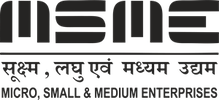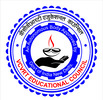From our childhood we have usually heard about waste being classified into two categories – biodegradable and non-biodegradable waste. But very few of us take interest in learning further about wastes and safer disposal methods that could help us in preserving mother earth for the next generation. When we start reading more about the wastes generated by us, we can find a few categories like harmful chemical wastes, nuclear wastes, medical wastes and a few more. These wastes are those that can turn environment toxic and kill lives.

Other wastes are generated during production processes, but medical wastes are generated while saving lives. But on not being disposed in a proper way it could kill lives. Though the evolution of technology has improved the quality of medical facilities, the waste generated from hospitals have not reduced. Starting from a small cotton swab to disposable surgical equipment, human organs and needles, everything comes in contact with either human blood or other fluids. Hence on being in contact with atmosphere for a prolonged duration, decomposition of those fluids will be initiated, leading to toxic gases being released into the atmosphere.
Medical wastes lead to land as well as air pollution, other than pollution they also give birth to a lot of new diseases in the region where they are dumped openly. Government have imposed a lot of rules and regulations on disposing medical wastes, but still there are many hospitals and clinics that are not following the rules while disposing it. The carelessness of these organizations is putting a big question mark on health of people who live in and around that region.
As we see an administration team in a hospital handling patient history, finance, duty sheets, overall administration and so on. Now there are few more additions to this administration team which includes hospital waste management, inventories management, PR etc.
We at Nautical Point offer courses related to hospital and hospital waste management. The basic qualification to pursue these courses are Secondary school certification – pass/fail, Higher secondary school certification – pass/fail, ITI, Diploma, any Bachelor Degree. For any clarifications or to know further details reach us out at www.nauticalcti.com










